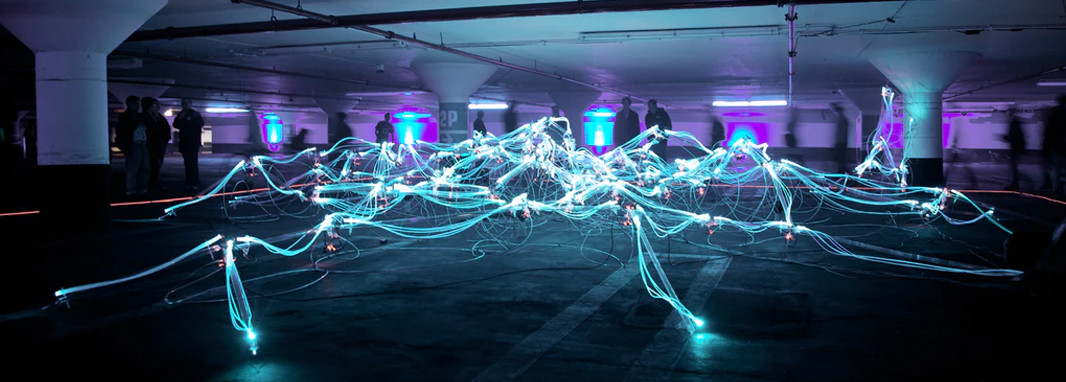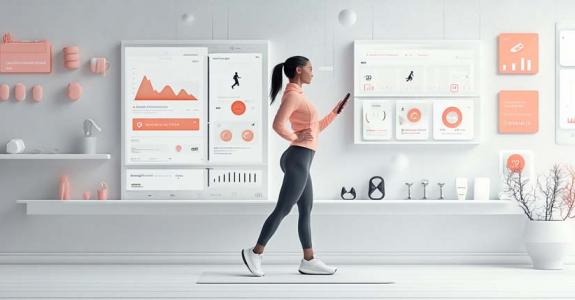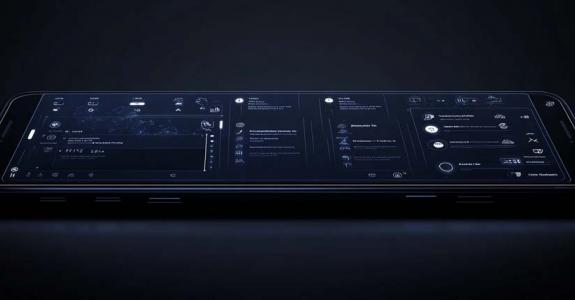As we live through the Information Age, it's safe to say that today the nature of work is dictated by the technologies. Keeping up with the latest trends is no longer a must for tech-savvies only. Understanding the key trends has become essential to both individuals and companies to stay competitive on the market and to seize new opportunities.
If you'd rather listen than read, start the video below
It's easy to see how fast-evolving technologies are redefining the way we live and work. So let's dive a bit deeper here and see which digital technologies will flourish in the coming future and which fields, in particular, adjust to the innovations more than others.
AI and Machine Learning

There are various definitions of these two, but the central concept lies within the development of computer systems that imitate human intelligence. They use algorithms and data to react and respond to specific actions.
We Provide AI-Powered Solutions from Concept to Launch.
AI and Machine Learning represent a breakthrough of the past decade and are being expanded in numerous businesses: from marketing and ecommerce to medicine and banking. Also check our last update on AI trends.
Blockchain

Blockchain is a list of blocks that contain pieces of data, each of which has a specific timestamp, link to a previous block, and is stored on separate computers. In other words, it's a distributed ledger that stores transaction records on many machines. Such a structure prevents any alterations to a block without having altered the other blocks, which can be especially beneficial for fraud-prevention purposes. It's widely used in healthcare, finance, and stock transactions.
Big Data

Big Data represents a combination of technologies with the main task to process massive data volumes. It allows businesses to make decisions based on the behavior patterns of their customers and build their marketing and sales strategies accordingly. Retail, law-enforcement, healthcare, marketing are just a few fields that analyze big data.
Augmented Reality

Augmented reality is a computer-generated visual data that creates a real-time artificial world, that a user explores through senses. At the moment, its most extensive area of application is the gaming industry and various educational systems.
Chatbots
Chatbots is a software designed to communicate with a user through audio or text to find out the user's request and to comply with it. Thanks to the huge progress made in machine learning over the past years, chatbots have become quite smart, making it sometimes hard to tell if one has a conversation with a chatbot or a real human. While chatbots have become an essential part of customer service in many industries, they've also proved to be useful in medicine. Some of the recent use cases include a bot for people who have chronic insomnia to more complicated solutions aimed at supporting people who have dementia and Alzheimer's.
Internet of Things

Internet of Things is any device, gadget, or system connected to the Internet that can process data in the cloud and be controlled by a user. Anything you can imagine in a smart home is probably IoT. Apple Watch, Amazon Echo, or even Tesla are among others of the well-known examples.
What are the consequences?
Based on the digitalization speed and scale, it's becoming quite clear that the workforce is inevitably changing too. To have a better idea of what exactly to expect, let's have a closer look at the global trends that we are already experiencing and that are likely to grow in the coming future.
Remote Work and Outsourcing
According to the International Work Organization, in 2019, the number of remote employees makes up 17% worldwide. The largest percentage show Japan and the USA, where this rate has reached 40% and keeps growing.
The tendency keeps increasing since this work model offers some undeniable advantages, such as office expenses reduction, the flexibility of the resources involved in a project, dismissal costs, and taxes on employment.
The rapidly rising demand for remote workers has stimulated another workforce trend - replacement of regular on-site staff by outsourced teams/employees. The US Outsourcing Institute says that 89% of companies delegate a certain part of their business processes to external partners. This practice is common in Europe too and has similar statistics: on average, 83% of European businesses do sub-contracting.
Outsourcing has been popular long enough to prove that this can be a working model. As one can observe, thanks to the technological advances, synchronization of business processes and the establishment of the new ones can be possible and efficient remotely, while saving companies' costs and giving a space for growth.
Humans are replaced

Yes, it's true: machines are indeed substituting human work. The effect is especially distinct for jobs that involve manual labor and robots come as a major solution here. What's curious, it's no longer a concept but some real cases that already exist. Here are some of them:
China has implemented robotic police officers in different specializations: street patrol, referral services, driving instruction, road accidents investigation.
South Korean shipbuilding companies Hyundai Navy and Daewoo Shipbuilding are using robots for building some major vessel segments for container transport.
Canada is introducing repairer-robots for power transmission lines.
The USA has launched industrial use of agricultural robots that fight crop diseases and take care of harvesting.
And the list goes on. Such innovations have substantially increased productivity while replacing a dozen workers. On the whole, the areas that benefit most from the robotics are the services sector and logistics.
Trendy technologies will affect the white-collar market too. AI and Blockchain, in particular, have proven efficient when dealing with routine intellectual work. Experts claim that automatization can be applied against such professions as call-center operators, bank workers, auditors, controllers, government employees. At the moment, four leading EU countries (Germany, France, Italy, and Spain) have achieved 46% in automatization in both private and public sectors.
Summary
"Prediction is complicated, especially if it's about the future", - Niels Bohr.
Digital technologies are progressing faster than ever, and so are the futuristic theories and forecasts about them. One surely can't give any guarantees here. The only indisputable projection though, is the tendency towards processes automatization not only in computer programming but in all the areas of human life.
We Provide AI-Powered Solutions from Concept to Launch.
If you feel that your business needs some digital transformations that can optimize your workflow and, thus, contribute to your bottom line, it's time to see what the technology world has to offer. Picking the best technologies and coming up with a custom solution that fits your business, is just our thing, so don't hesitate to contact us!






